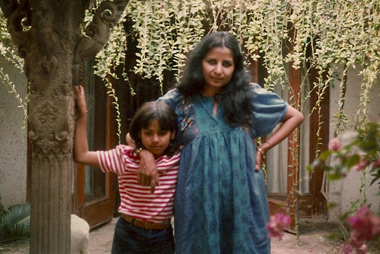In any art, there are classics. Pieces—be they paintings or poems, sculptures or songs—that so encapsulate some moment in our collective sense of human history that they transcend the petty details of style and genre. Michelangelo’s “Moses” and Grandma Moses are not so different in the end.
So it is with film. To be sure, we all have our preferences, and why not? Life as a filmgoer wouldn’t be as much fun otherwise. But when a classic passes before your eyes, it doesn’t matter where it came from: the important thing is that it’s there, at that moment. It stops being a comedy, a drama; instead it becomes, briefly, a part of you, and you it. And when the credits roll, you’ve been changed.
This week provides a rare chance to revisit one of those surprising classics when The Godfather comes to Cinemark Theaters for two shows on Wednesday, April 10. Francis Ford Coppola’s 1972 film came from humble roots—Mario Puzo’s novel was a worthy entry in the crime genre, but not the masterpiece the film would become—yet went on to have a lasting effect not only on film and television (where organized crime stories continue to rule the roost to this day) but on the American psyche. “The Godfather Effect,” as it became known, strengthened Americans’ (and not only Italian-Americans’) sense of ethnic identity, leading to new explorations of old stories and traditional arts—and an avalanche of not-so-classic crime flicks.
But even if you think the Mafia isn’t your cup of grappa, the original is worth seeing. The cast (including Marlon Brando, Robert Duvall, and Diane Keaton in some of their finest roles) is wonderful across the board, and for those who haven’t seen it, it may be a revelation to see an intense Al Pacino—one who doesn’t chew the scenery—as the “good” son whose sense of family identity leads him in directions he never expected. Grand drama that manages to be both the story of one family and an entire immigrant population, The Godfather is no mere shoot-’em-up.
*
Also this week: Amherst Cinema presents a clutch of special shows. First up is Looking Through A Glass Onion: Deconstructing The Beatles’ White Album, a multimedia presentation by Scott Freiman scheduled for Thursday, April 4. The Beatles scholar combines his encyclopedic knowledge of the band with his expertise as a composer and producer (his own music has been performed at Lincoln Center and Carnegie Hall) to break down the iconic albums of the Fab Four. In this lecture, he traces their most famous songs from demos to finished tracks, discussing their groundbreaking studio techniques with the aid of rare audio and video examples.
Next up are two opportunities to connect with film directors in an intimate setting. On the 6th, the theater will host I Am, a film by Delhi native (and Mount Holyoke alumna) Sonali Gulati about returning as an out lesbian filmmaker to a land where being gay was until recently a crime. Gulati is also returning to the memory of her mother. And on April 9, Mariette Monpierre will be on hand to discuss her film Elza, an award-winning look at one woman’s quest to discover the truth of her heritage. Stana Roumillac stars as the title character, a woman born in Guadeloupe and raised in Paris (as was Monpierre). After the triumph of becoming the family’s first college graduate, Elza is compelled to travel to the Caribbean to search out the father she never knew. Along the way, she discovers some unexpected truths that help her understand who she truly is.
And finally this week, Amherst has been so overwhelmed by the response to its Hayao Miyazaki film festival that the theater has decided to expand its screenings. Each film will now play four times a week, with two shows each on Sunday afternoons and Wednesday evenings. This week’s selection is Howl’s Moving Castle, a 2004 animated fantasy from the director of Spirited Away. In it, a teenaged girl is befriended by the mysterious wizard Howl, who lives in an enormous, floating castle. Cursed by a jealous witch, Sophie and Howl search for a way to reverse the spell as they explore their worlds together.•
Jack Brown can be reached at cinemadope@gmail.com.



